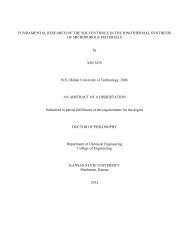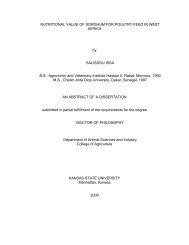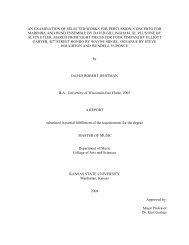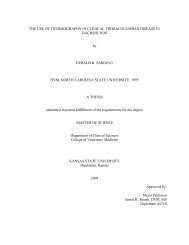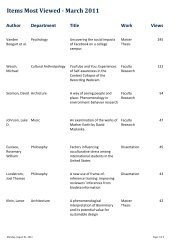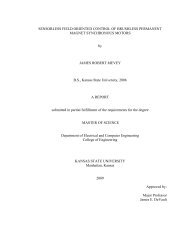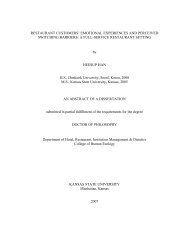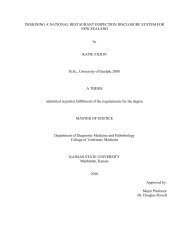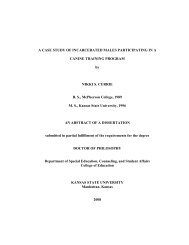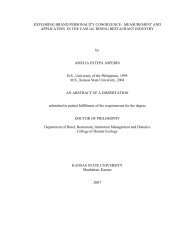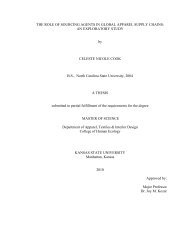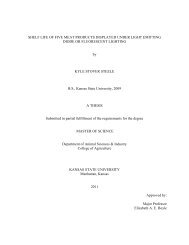SELFISH INTENTIONS - K-REx - Kansas State University
SELFISH INTENTIONS - K-REx - Kansas State University
SELFISH INTENTIONS - K-REx - Kansas State University
You also want an ePaper? Increase the reach of your titles
YUMPU automatically turns print PDFs into web optimized ePapers that Google loves.
government regulations focused on the family unit as the central institution of social order; in the<br />
eyes of the law, unmarried people could too easily escape the discipline of the law. As<br />
VanBurkleo explains, “The well-being of political society seemed to depend on the ongoing<br />
stability of ‘little commonwealths.’” 13 In the American colonies, the state had an interest in<br />
regulating marriage because they believed if they controlled the family, they would have order in<br />
society.<br />
A central aspect of that marital order was the hierarchical status of husband and wife,<br />
summarized in the concept of coverture. Coverture was a way of describing a woman’s legal<br />
status after she married. As legal historian Hendrik Hartog asserts,<br />
It [coverture] named the condition of a married women, who at common law was<br />
a ‘feme covert,’ a woman covered over by her husband. In Blackstone’s<br />
paradigmatic words, ‘the very being or legal existence of the wife’ was suspended<br />
‘during the marriage, or at least’ was ‘incorporated or consolidated into that of the<br />
husband: under whose wing, protection, and cover’ she performed everything. 14<br />
Under coverture, a man could not grant anything to his wife or enter into a contract with her. In<br />
exchange for gaining absolute control over his wife and any property she brought into the<br />
marriage, the husband was bound to support her. Coverture also meant that a husband had the<br />
right to “correct” his wife, since he was legally responsible for her behavior. Because of these<br />
policies, women were subjugated to a position of subordination that made them particularly<br />
vulnerable to marital abuse. Under these circumstances, the possibility of divorce was of<br />
particular importance to women. 15<br />
13 Ibid., 13.<br />
14 Hendrik Hartog, Man and Wife in America: A History, (Cambridge: Harvard <strong>University</strong> Press, 2000), 115.<br />
15 Hartog, 115-116.<br />
3



